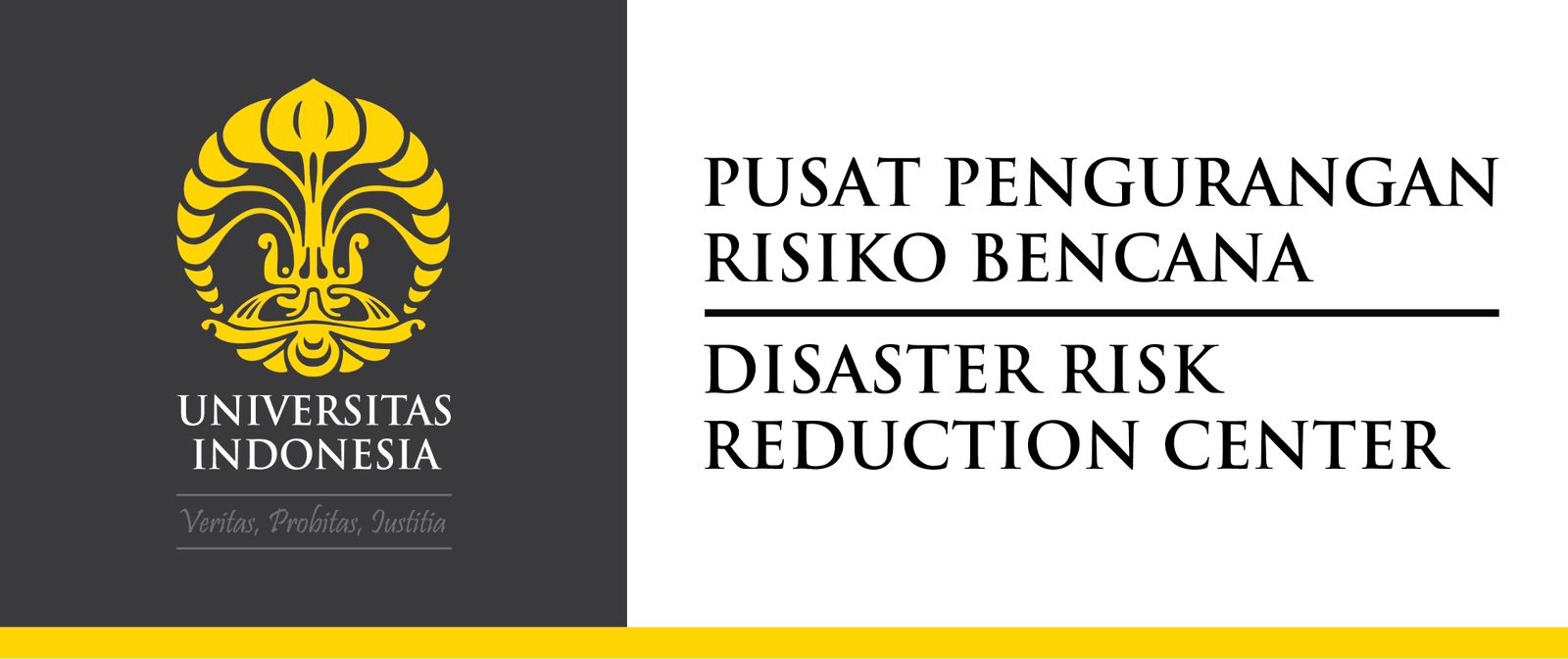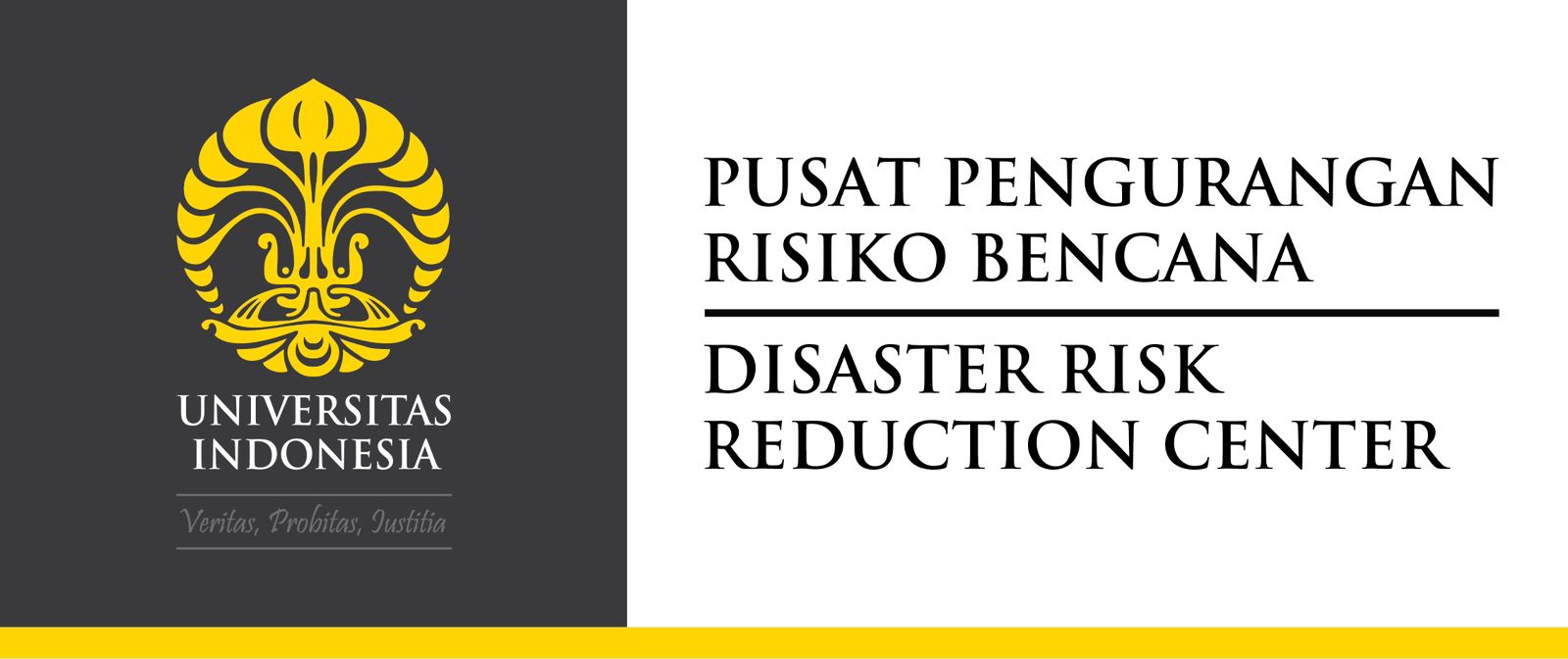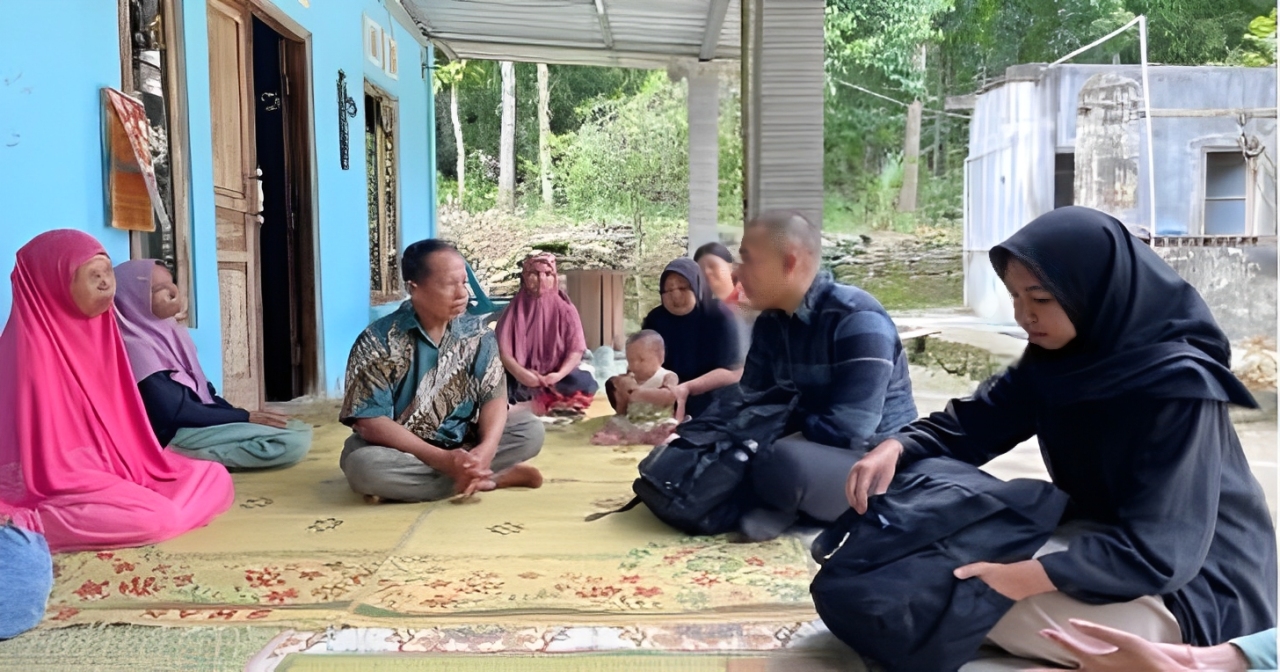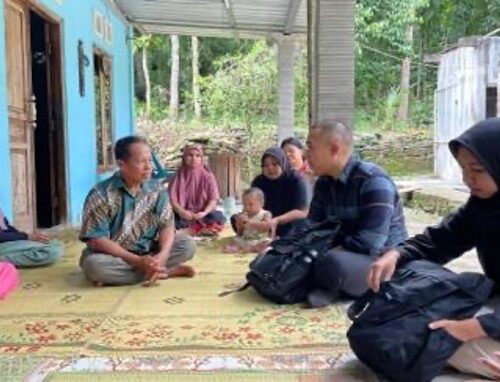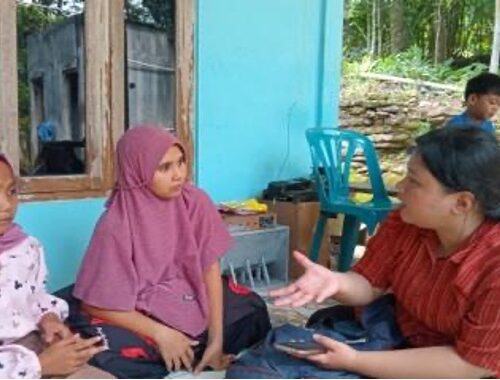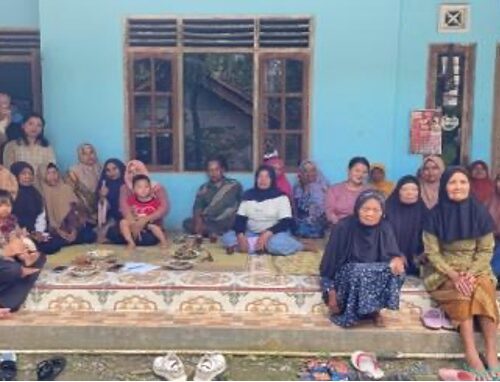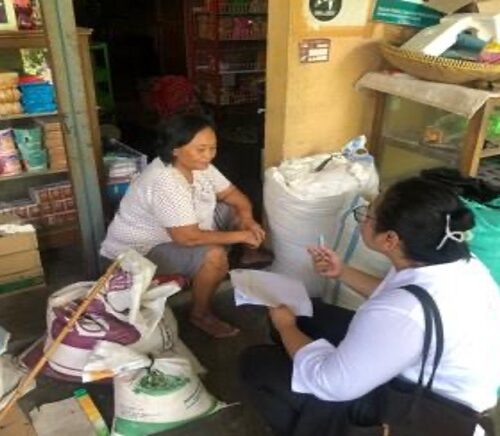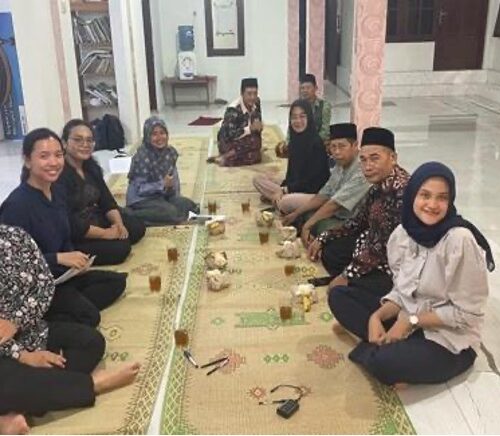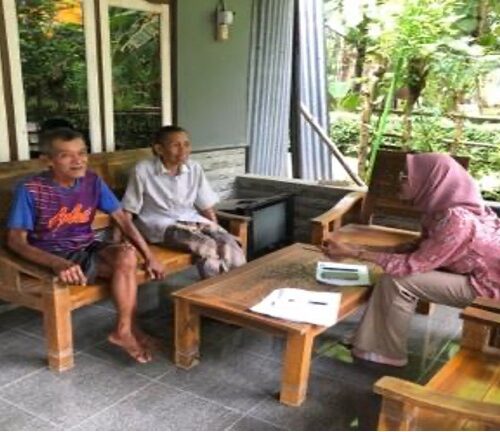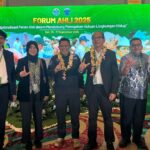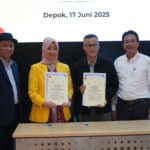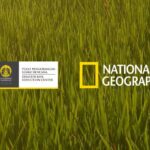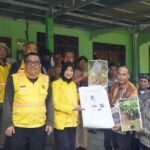As part of the project “Integrating Embung, an Indigenous Nature-Based Water Storage with IoT to Conserve Freshwater in the Arid Kulonprogo Landscape,” the research team from the Disaster Risk Reduction Center (DRRC) Universitas Indonesia has conducted a series of data collection activities in collaboration with Universitas Gadjah Mada (UGM). The field data collection was carried out throughout March 2025 in Dukuh Bendo, Desa Ngentakrejo, Lendah, Kulonprogo.
The research team is led by Prof. Dra. Fatma Lestari, M.Si., Ph.D., who was recently named a National Geographic Explorer. This research was supported by the National Geographic Society through its World Freshwater Initiative.
The purpose of this data collection is to explore and map the community’s knowledge and perception regarding embung—the traditional water reservoir—and the potential integration of Internet of Things (IoT) technologies for more efficient freshwater management. This initiative aims to gain a better understanding of how local knowledge and technological innovation can be combined to build sustainable water systems that are both resilient and community-driven.
The data collection was conducted in stages to ensure a comprehensive approach and inclusive participation. It included interviews, surveys, and informal discussions with local residents, farmer groups, and community leaders. By working closely with local stakeholders and leveraging UGM’s regional expertise, the research team ensured that the collected insights reflected the community’s lived experiences and needs.
The findings from this phase will serve as the foundation for designing future interventions, including IoT-based monitoring systems, educational workshops, and the co-development of embung revitalization plans with the community. This collaborative effort underscores the importance of grounding innovation in local wisdom and participatory processes to achieve long-term water resilience.
